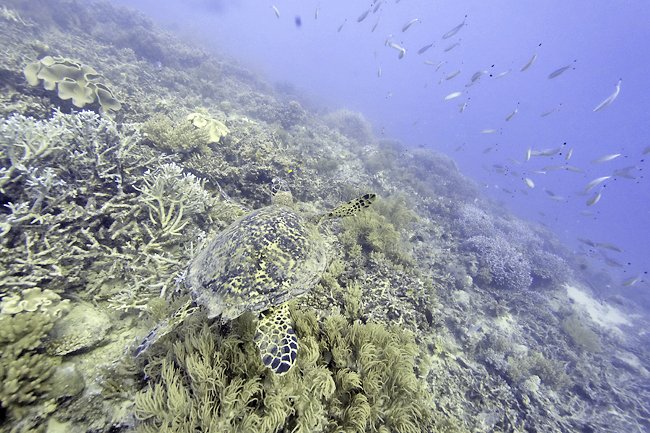CANBERRA (AP) – Australia’s environment minister said yesterday her government will lobby against United Nations Educational, Scientific and Cultural Organization (UNESCO) adding the Great Barrier Reef to a list of endangered World Heritage sites, arguing that criticisms of government inaction on climate change were outdated.
Officials from the cultural agency and the International Union for Conservation of Nature released a report on Monday warning that without “ambitious, rapid and sustained” climate action, the world’s largest coral reef is in peril. The report, which recommended shifting the Great Barrier Reef to endangered status, followed a 10-day mission in March to the famed reef system off Australia’s northeast coast that was added to the World Heritage list in 1981.
Environment Minister Tanya Plibersek said the report was a reflection on Australia’s previous conservative government, which was voted out of office in May elections after nine years in power. She said the new centre-left Labour Party government has already addressed several of the report’s concerns, including action on climate change. “We’ll very clearly make the point to UNESCO that there is no need to single the Great Barrier Reef out in this way” with an endangered listing, Plibersek told reporters.
“The reason that UNESCO in the past singled out a place as at risk is because they wanted to see greater government investment or greater government action and, since the change of government, both of those things have happened,” she added.
The new government legislated to commit Australia to reducing its greenhouse gas emissions by 43 per cent below the 2005 level by 2030. The previous government only committed to a reduction of 26 per cent to 28 per cent by the end of the decade.
Plibersek said her government also committed AUD1.2 billion (USD798 million) to caring for the reef and cancelled the previous government’s plans to build two major dams in Queensland state that would have affected the reef’s water quality. “If the Great Barrier Reef is in danger, then every coral reef in the world is in danger,” Plibersek said.
“If this World Heritage site is in danger, then most World Heritage sites around the world are in danger from climate change.”
The report said Australia’s federal government and Queensland authorities should adopt more ambitious emission reduction targets in line with international efforts to limit future warming to 1.5 degrees Celsius since pre-industrial times.








